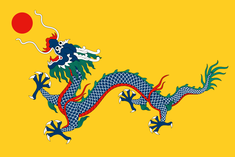
Chinese History 101 #07: Late Qing Dynasty
Last updated: Thursday December 23rd, 2021
Report this blog
From where we left off
I stopped at the end of Qianlong Emperor's reign of the Qing dynasty in my previous blog. In this blog, I will continue from the next emperor, Jiaqing Emperor (reign 1796 - 1820), until the fall of the Qing (the bottom of the dark orange section below).
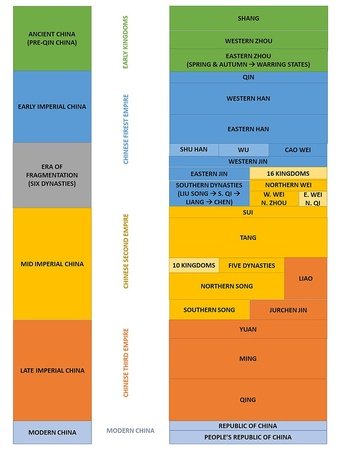
Jiaqing era (1796 - 1820)
In my last blog, I mentioned that towards to end of Qianlong era, corruption became rampant and the dynasty started to decline. Qianlong abdicated after ruling for 60 years as he thought it would be disrespectful to his grandfather Kangxi if he ruled longer than him, but he held on to power as a regent for few more years until his death. As soon as Jiaqing Emperor gained real power, he arrested Heshen, confiscated all his wealth and forced him to commit suicide.
However, corruption did not end with Heshen and worsened during the Jiaqing era, as most government and military officials were corrupted and dysfunctional. Academics and scholars only focused on passing the imperial exams to get a position in the imperial court, and pleasing their superiors and the emperor by reporting only the good news and hiding the bad. The emperor was unaware of what was going on in his vast empire, with peasant rebellions happening across the country.
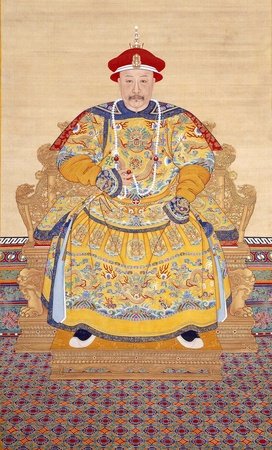
Since the time of the Mongol empire and Marco Polo, Europeans started to learn more about the Chinese culture and arts. Chinoiserie became popular in Europe in the late 17th and 18th century, as European traders brought large amount of Chinese porcelain, lacquer, textiles, spices and tea to Europe. On the other hand, with its self-sufficient economy and isolationist policy, the Chinese did not import much European goods and would only trade with silver. In the late 1700s, Britain and France were deeply concerned about the imbalance of trade and the drain of silver.
The British finally found a solution to this by importing opium to China from British India. The balance of trade started to tip over and China lost large amount of silver to the West. Millions of people in China, from government officials, businessmen, housewives to monks, became addicted to opium.
Daoguang era (1820 - 1850)
Daoguang Emperor was very concern about the outflow of silver and opium addiction that he sent his viceroy Lin Zexu to ban the opium trade. Lin confiscated the stocks of opium without compensation in 1839, leading to Britain sending a military expedition the following year.
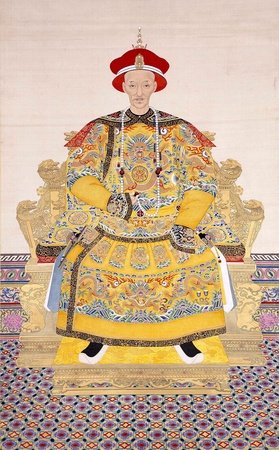
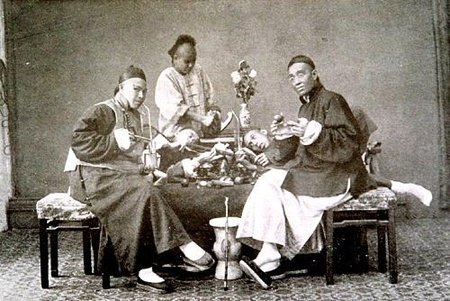
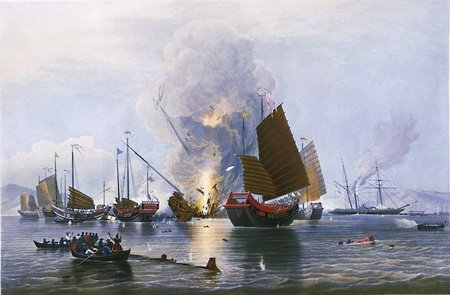
This was the infamous First Opium War (1839 - 1842), in which the superior Royal Navy inflicted heavy defeat against the backward Qing dynasty. The Qing was forced to sign the Treaty of Nanking, whereby Hong Kong island was ceded permanently to the British, and the Qing had to open up five ports for trade (Canton, Amoy, Foochow, Ningpo and Shanghai).
This was the first of many unequal treaties signed by the Qing, which negotiated peace by giving up territories, making reparations, opening up ports and losing control over judiciary, tariff and other rights. The war exposed the Qing's weakness and provoked rebellions against the regime.
Xianfeng era (1850 - 1861)
Hong Xiuquan, a self-proclaimed brother of Jesus Christ, started the Taiping Rebellion in 1850 in Guangxi province. He founded the God Worshipping Society with his own interpretation of Christianity combined with Chinese folk religions. His forces grew and by 1851, he proclaimed himself the Heavenly King of the Taiping Heavenly Kingdom. He aimed to convert Han Chinese into Christianity and overthrow the Manchus, which he considered as demons. His forces captured Nanjing in 1853 and renamed it to Tianjing ("Heavenly Capital"). For more than a decade, the Taipings occupied and fought across southeastern China, as well as a failed northern expedition to capture Beijing. The Taiping Rebellion was the bloodiest civil war in human histories, with 30-50 million people dead, a number comparable to World War I.
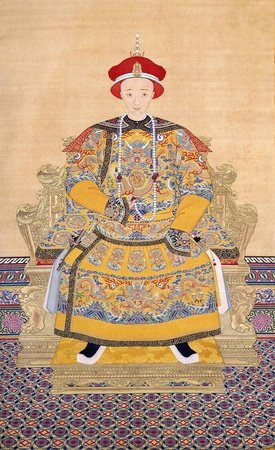
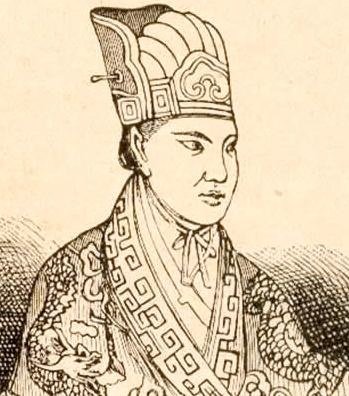
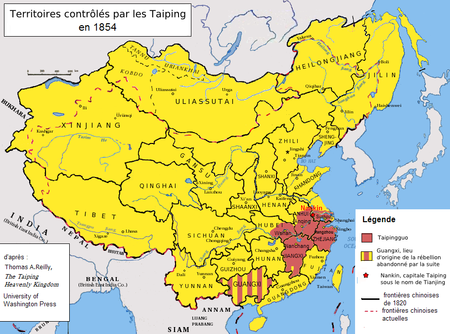
While China plunged into a large-scale civil war, the West initially maintained neutrality as they were unsure which side would win. But they soon found that the Taipings were extremely cruel, religiously intolerant, politically disorganised, and refused to honour the Treaty of Nanking and threatened Western interests in China. They reluctantly helped the Qing defeat the Taipings in an attempt to take Shanghai in 1860.
The British was unsatisfied with the limited gain achieved in the Treaty of Nanking and the non-compliance from the Qing side. In 1856, the Qing seized a British cargo ship Arrow on suspicion of piracy, which triggered the Second Opium War (1856-60). The joint Anglo-French forces occupied Guangzhou and invaded Beijing, looted the Summer Palace and burnt down the Old Summer Palace in revenge for the Qing imprisoning and torturing of British diplomatic envoys. Xianfeng Emperor fled to Chengde, leaving his brother to negotiate the Convention of Peking. The Qing submitted to humiliating terms, including the legalisation of opium sales, ceding the Kowloon peninsula to the British, opening more trading ports, huge reparations, allowing hiring of Chinese coolies to work in Americas, and a proviso granting British warships unlimited access to all navigable Chinese rivers.
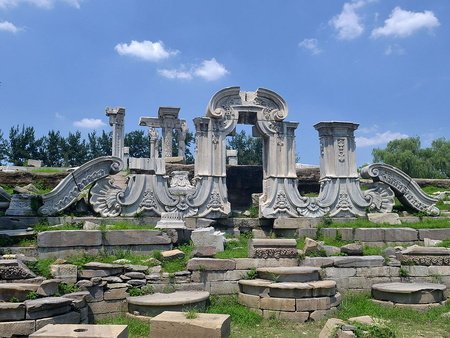
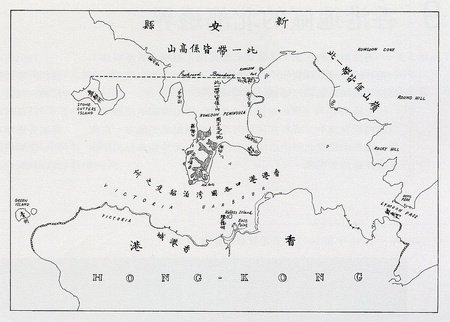
Meanwhile, Russia (which was not involved in the war) took advantage of the turmoil in China and forced the Treaty of Aigun in 1858 and the Convention of Peking in 1860. In total, Russia gained over 600,000 square km of territory and subsequently founded the city of Vladivostok ("Ruler of the East").
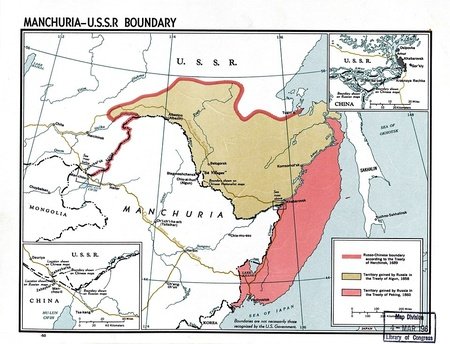
Tongzhi era (1861 - 1875)
The Taiping Rebellion continued until the Fall of Nanjing in 1864 by the decentralised militia Xiang Army, which looted and burnt the city and massacred 200,000 to 300,000 of its citizens. The was the worst atrocity against Nanjing since the Hou Jing's siege in the 6th century (see my third blog), until the Rape of Nanking by the Japanese in 1937 (see my ninth blog).
After the military disaster of the Second Opium War, the Qing realised the need of reform and started the Self-Strengthening Movement. It aimed to apply practical Western knowledge while reaffirming the old mentality. The movement established successful industries, modernised military, schools, corporations, banking system, postal/telegram system, rail networks etc. Western books were translated into Chinese, and students were sent overseas to learn about science and technology. This period of revival under the rule of the young emperor's mother Empress Dowager Cixi was called the Tongzhi Restoration.
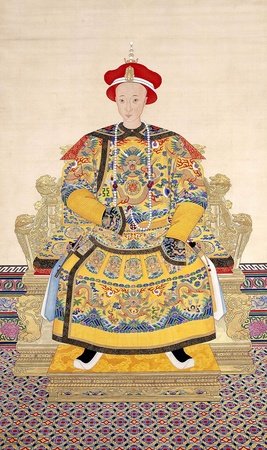
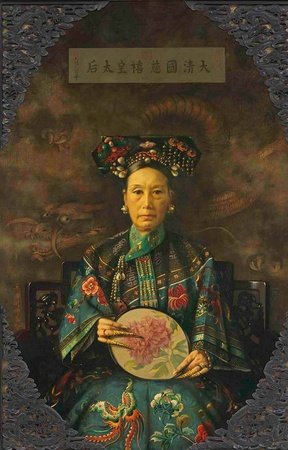
Guangxu era (1875 - 1908)
Empress Cixi installed her nephew as Guangxu Emperor but continued to rule as a regent. In 1884-85, the Sino-French War broke out over the control of Vietnam. The war ended in a stalemate and a peace treaty was reached with the French retreating from Taiwan but gaining control over Vietnam, which later became the French Indochina. This relatively not-so-bad outcome for the Qing further strengthened Empress Cixi's grip on power. Meanwhile the Qing focused on building its modern Beiyang Fleet, which became the largest navy fleet in Asia and the 8th largest in the world at the time.
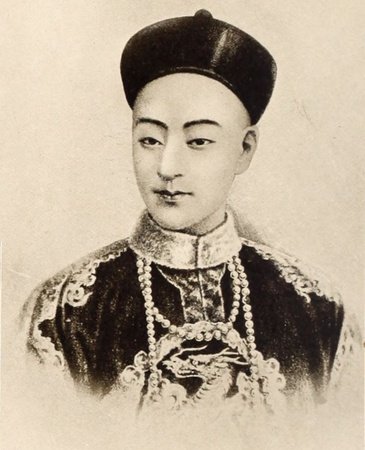
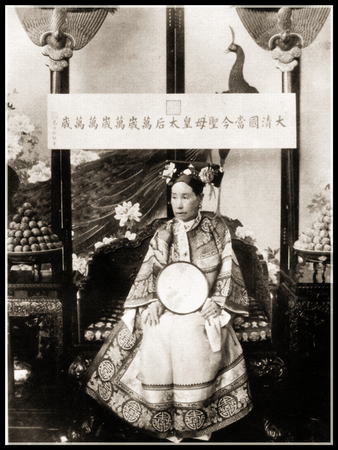
However, the Self-Strengthening Movement and the Beiyang Fleet came to a disastrous end in the First Sino-Japanese War in 1894-95 over Korea. Similar to the Qing, Japan underwent modernisation during the Meiji Restoration with the intention of making Japan an equal to the Western powers. In 1887, the Japanese government formulated a strategy to conquer the Qing and to break it into few smaller states. It actively built its military and navy in preparation for war.
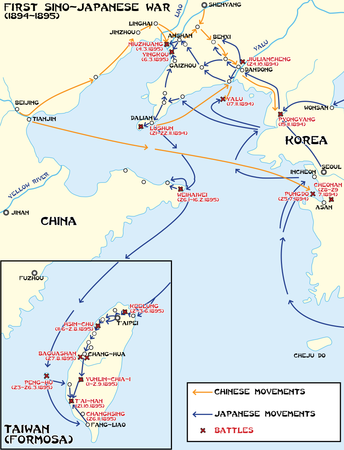
In 1894, anti-Japanese rebellion broke out in Korea and the Japanese invaded Seoul to install a pro-Japanese government. The Qing declared war on Japan, but its supposedly superior Beiyang Fleet, which was ill-prepared for war and had not been upgraded for 6 years, was annihilated by the smaller, faster and more modern Japanese torpedo boats. The Qing was forced to sign the Treaty of Shimonoseki, ceding Taiwan and the Liaodong Peninsula to the Japanese, paying a huge indemnity, and was forced to recognise Korean independence.
Russia, which was looking for a warm-water port in the East, did not want to see Port Arthur (today Dalian) fell to the Japanese. It together with France and Germany intervened and forced the Japanese to give up the Liaodong Peninsula for an increased indemnity by China.
The Qing then entered into the Sino-Russian Secret Treaty, forming a military alliance with Russia against the Japanese. The Russian was granted rights to build and control the Trans-Manchurian Railway, to deploy troops to "protect" the rail line, and enjoyed extraterritorial jurisdiction in Manchuria. This treaty effectively allowed Russia to annex Manchuria in all but name.
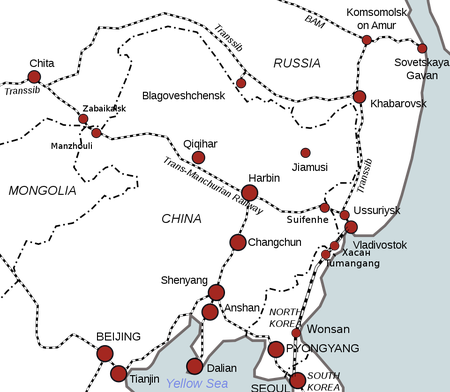
The news of the secret treaty soon leaked out and other countries started demanding their own lease territories, including Jiaozhou Bay (Qingdao) by the German, Zhanjiang by the French, and New Territories of Hong Kong and Weihai by the British. The scramble of China was only stopped when the United States, which was late to the party due to its involvement in the Spanish-American War, proposed the Open Door Policy in 1899 to mediate the competing interests of different colonial powers in China.
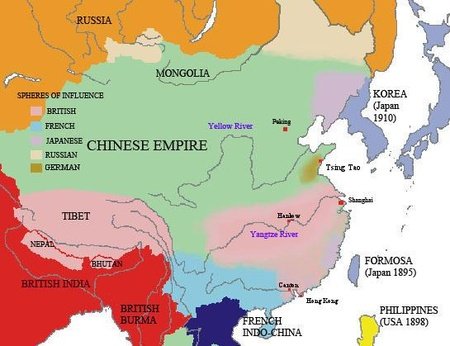
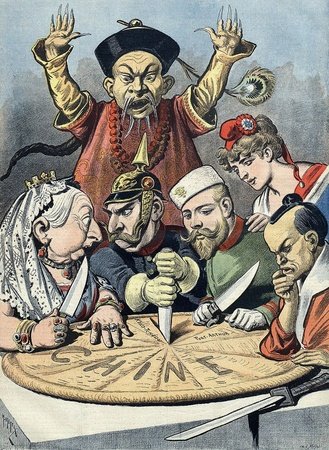
In the wake of these external defeats, the Guangxu Emperor initiated the Hundred Days' Reform in 1898. However, these radical measures threatened the bureaucracy and Empress Cixi stepped in to call them off, took over control and put Guangxu under house arrest.
Meanwhile in Northern China, uneducated villagers had been building resentment against foreigners and formed the "Militia United in Righteousness", or Boxers in English. Violence and murder spread across Northern China against foreign properties, Christian missionaries and Chinese Christians. The Boxers, who practised kung-fu and convinced that they were invulnerable to guns, converged in Beijing in 1900 and besieged the Foreign Legation Quarter. In response, troops from the Eight Nation Alliance (Austria-Hungary, Great Britain, France, Germany, Italy, Japan, Russia and the United States) entered China to lift the siege. Empress Cixi initially hesitated to support the Boxers but eventually declared war on the foreign powers. Governors in the southern provinces, however, ignored the imperial decree (saying it was fake) and formed a mutual defence pact to preserve peace.
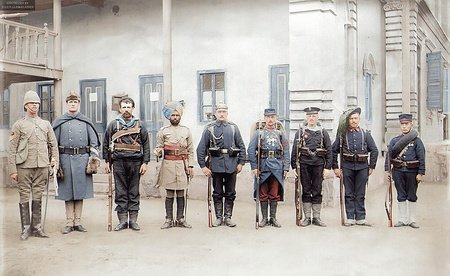
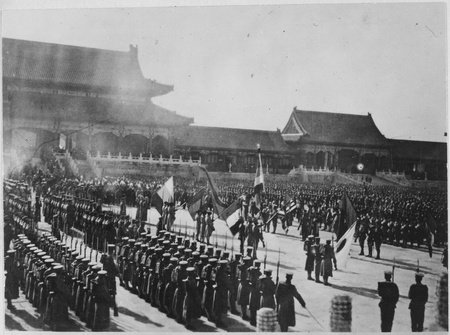
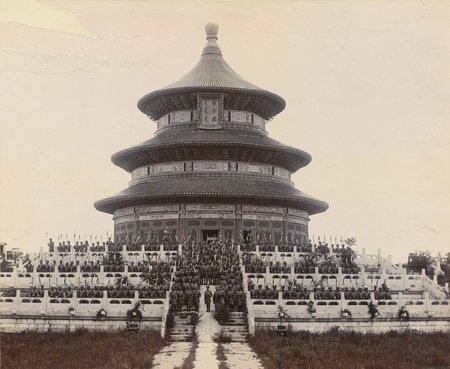
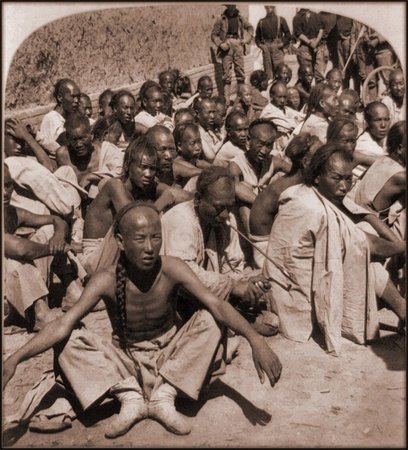
After a short and hard-fought campaign, Beijing was lost and Empress Cixi fled to Xi'an. China was fined war reparations of 450 million taels (17000 t) of silver, based on then population of China (i.e. 1 tael of silver per person), to be repaid over 39 years with 4% interest, and with Chinese custom income and taxes enlisted as guarantee. From 1901 to 1939, China paid 669 million taels of silver, equivalent to US$61 billion in 2010.
Much of these payments to the United States went to the Boxer Indemnity Scholarship Program, sponsoring Chinese students to study in American universities. The returning students established the Tsinghua University in 1911, which is now one of the top universities in the world.
After the Boxer Rebellions, mass civil disorder began in China. Some called for drastic reforms and others tried to overthrow the Qing regime altogether. To overcome such problems, Empress Cixi implemented the "New Policies", a set of political, educational, economical and military reforms, paving ways to set up a constitutional monarchy ultimately.
Xuantong era (1908 - 1912)
In 1908, Guangxu Emperor died, rumoured to be poisoned, and Empress Cixi died the following day. The two-year-old Puyi, nephew of Guangxu, was appointed as successor with his father as regent.
In 1911, the first cabinet of the Qing dynasty was formed, but over half of them were Manchus royalties. Hopes on the Qing faded among the people, and the Wuchang Uprising was successful on 10 October 1911. By November, 14 of the 18 provinces had rejected Qing rule. A new central government, the Republic of China, was formed in Nanjing with Sun Yat-sen as its provisional head.
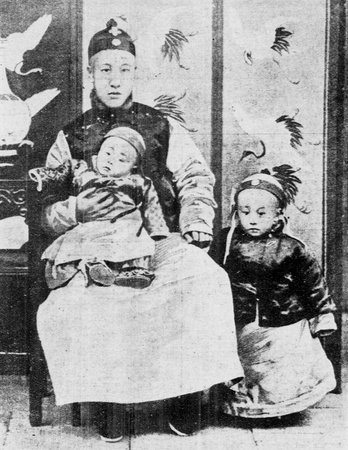
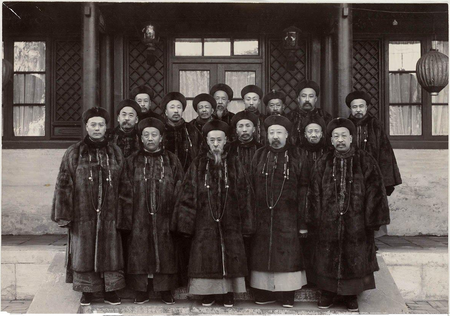
As the situation unfolded, the Qing government became desperate and sought help from general Yuan Shikai, who was appointed prime minister and took over control of the Beiyang Army. On one hand, his forces crushed the revolutionaries. On the other hand, he negotiated with them, and Sun Yat-sen promised to let Yuan become the president of the republic if he could force the Qing emperor to abdicate. A favourable offer was made to the Qing imperial family, including allowing them to stay in the Forbidden City with an annual subsidy and maintaining the royal titles. Empress Dowager Longyu hence formally abdicated on 12 February 1912, ending the Qing dynasty and over 2000 years of imperial rule in China.
The end of the seventh blog
Sorry this is another long blog which is more like an epic than an introduction. But as you can see, a lot happened in the last 100 years of the Qing dynasty, and I already skipped a lot of other events and details. This blog is longer than all my previous blogs, which usually cover ~400 years of history each (in fact the first blog covers over 2500 years of history).
Thanks again for reading to the end and please feel free to comment.

in which there is no war) and between the Fire Nation and Japan really striking. If you haven't seen it, I don't want to give away any spoilers, but I highly recommend :)Anyways, I haven't kept up on these blogs much unfortunately, but they certainly are very interesting and well worth the read. Even though I'm guessing the "Chinese History" blog is ending soon, I'd love to see more like this in the future!
I can only write on topics that I'm familiar with. I'll leave it to others to write about the history of other countries.